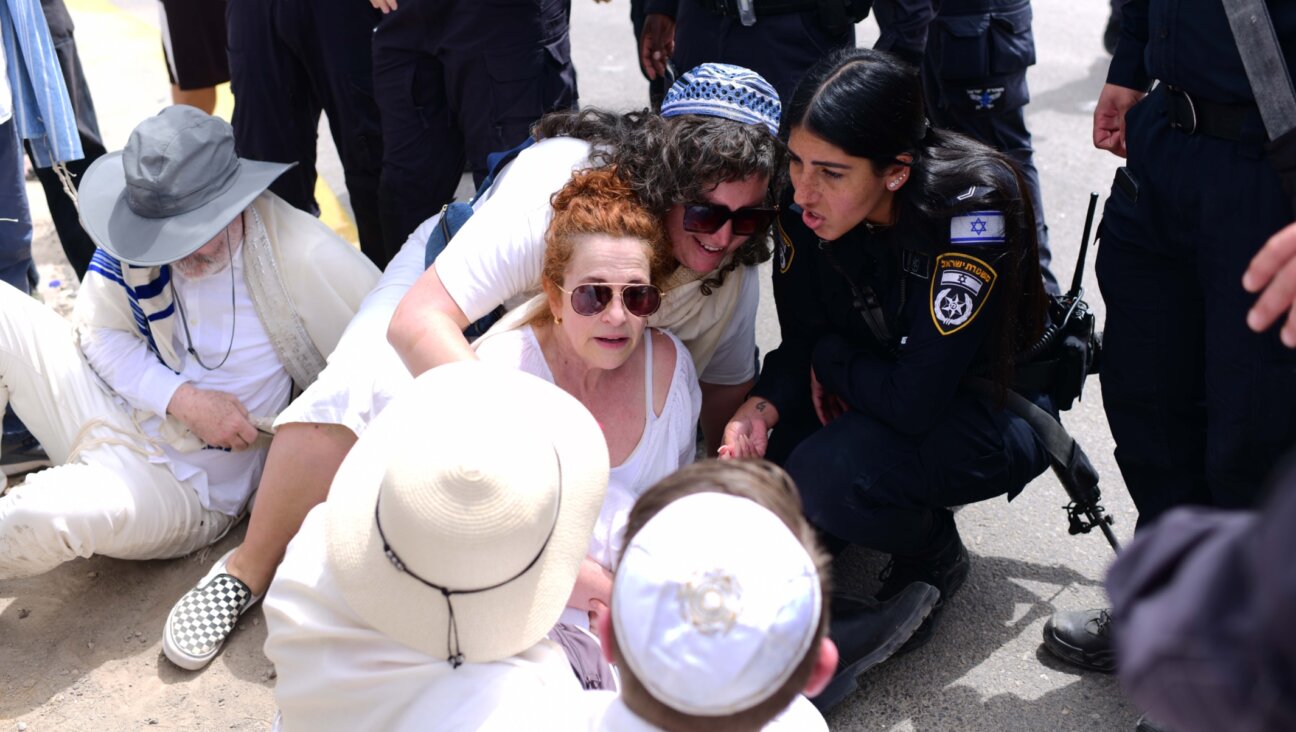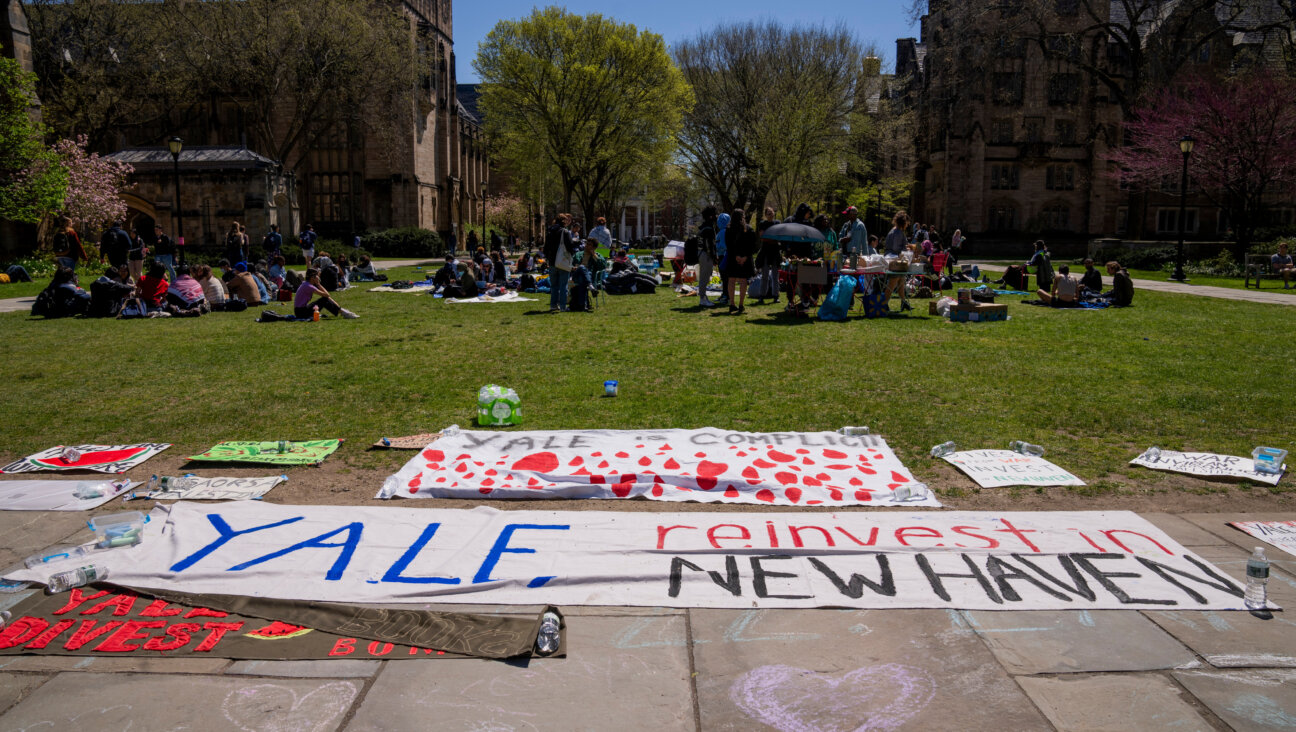Who Says Rabbis Must Be Role Models On Intermarriage — Or Anything Else?

BREAKABLE BONDS?: Intermarriage for rabbis may push the boundaries of Judaism too far. Image by thinkstock
Jane Eisner is right to attribute the change in Reconstructionist Rabbinical College’s intermarriage policy to a disagreement about the rabbi’s role in his or her community. But she misses the reason for this disagreement. :
“Clergy don’t reflect their congregations. Clergy lead their congregations — and do so not as leaders who bow to the fashion and trends of the moment, but as vivid exemplars of our best norms and intentions, as strong aspirational figures.”
Certainly when we think of some of the great rabbis in our history, real and mythical, we think of people who were meant to be emulated: the Baal Shem Tov for his spirituality, the Vilna Gaon for his intellect, Abraham Joshua Heschel for his commitment to social justice. It does seem strange, as Eisner points out, to ordain rabbis who we actually don’t want people to emulate. If one doesn’t want to be emulated, she asks, “Why else join the rabbinate?” Good question.
Becoming a rabbi for many rabbinical students today is not about becoming a model but about becoming legitimate in the eyes of the Jewish community. In short, many rabbinical students today are not interested in what they could do for the Jewish people as models of Jewish life but in what the title/currency of rabbi could do for them and their group’s feeling of marginalization within the Jewish world.
The same way a marginalized citizen in a democracy might run for office to give voice to his or her ignored concerns, many rabbinical students today see the rabbinate as a path toward being taken seriously by a Jewish establishment not known for its receptiveness to change or difference.
As a twenty-something rabbinical school dropout with a strong familiarity with the current crop of rabbinical students — I have also been a part of Wexner and Hadar communities — I experienced this motivation firsthand.
There has been a significant increase in the diversity of rabbinical students — women, converts, LGBTQ, patrilineal Jews, Jews of color — all of whom have well-founded grievances against mainstream Jewish institutions. Many told me that a large part of their motivation to pursue ordination stemmed from their desire to be taken seriously by the institutions that essentially make Jewish communal policy.
Because rabbinical ordination functions as legitimization in the Jewish world, Jews of all kinds, including Jews who have intermarried, seek the “rabbi” title as a means of acceptance. And when the rabbinate is seen in this manner, the position of rabbi is no longer about emulating the ideal, but about representing the real — you’re not a paragon, but a spokesperson.
With this move, the RRC is essentially saying: Why shouldn’t intermarried Jews have a voice, too? To focus on whether or not rabbis should be exemplars is to miss the whole reason that many Jews go into the rabbinate in the first place.
Ben Bernstein is a writer whose work has appeared in The New Yorker and The New Republic.

I hope you appreciated this article. Before you go, I’d like to ask you to please support the Forward’s award-winning journalism this Passover.
In this age of misinformation, our work is needed like never before. We report on the news that matters most to American Jews, driven by truth, not ideology.
At a time when newsrooms are closing or cutting back, the Forward has removed its paywall. That means for the first time in our 126-year history, Forward journalism is free to everyone, everywhere. With an ongoing war, rising antisemitism, and a flood of disinformation that may affect the upcoming election, we believe that free and open access to Jewish journalism is imperative.
Readers like you make it all possible. Right now, we’re in the middle of our Passover Pledge Drive and we still need 300 people to step up and make a gift to sustain our trustworthy, independent journalism.
Make a gift of any size and become a Forward member today. You’ll support our mission to tell the American Jewish story fully and fairly.
— Rachel Fishman Feddersen, Publisher and CEO
Join our mission to tell the Jewish story fully and fairly.
Only 300 more gifts needed by April 30























